5 conclusions from the women's road race at the Olympics
Unpredictability wins as powerhouse Dutch team loses out to solo amateur while race radio debate raises its head
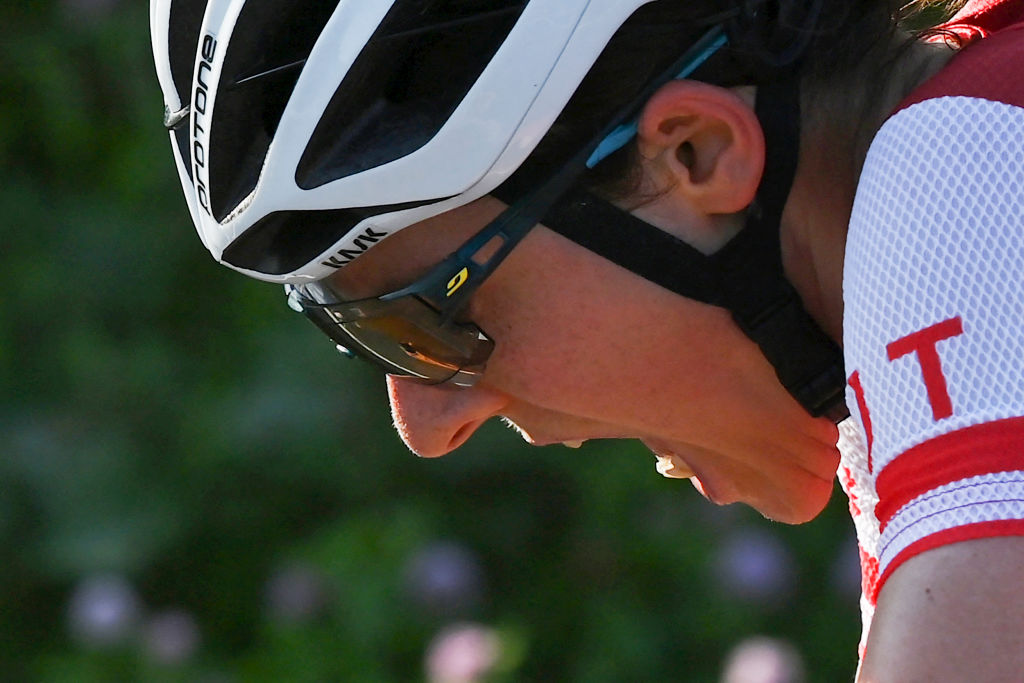
It was the most unexpected outcome at the Tokyo Olympic Games.
A powerful early breakaway, questionable team tactics, limited communication all led to a hard-fought and well-deserved, yet shocking, triumph by a relatively unknown rider from Austria, Anna Kiesenhofer.
The elite women’s road race tackled 137km starting from Musashinonomori Park to the Fuji International Speedway, and with two mid-race climbs, it featured a total of 2,692 metres of elevation gain.
The relatively small field of 67 riders was made of up of a miss-matched number of riders on each national team.
Major nations including the Netherlands, Australia, Italy, Germany and the USA fielded teams of four, while all other nations lined up with between one and three riders.
The Dutch team were undeniably the favourites to secure a third consecutive gold medal after Marianne Vos won in 2012 and Anna van der Breggen in 2016. However, the script was torn apart along the roads to the Fuji International Speedway.
As the event came to fruition following its postponement last summer due to the COVID-19 pandemic, Cyclingnews highlights the biggest takeaways from the women’s road race at the Tokyo Olympics Games.
The latest race content, interviews, features, reviews and expert buying guides, direct to your inbox!
Unpredictability and a new Olympic Champion
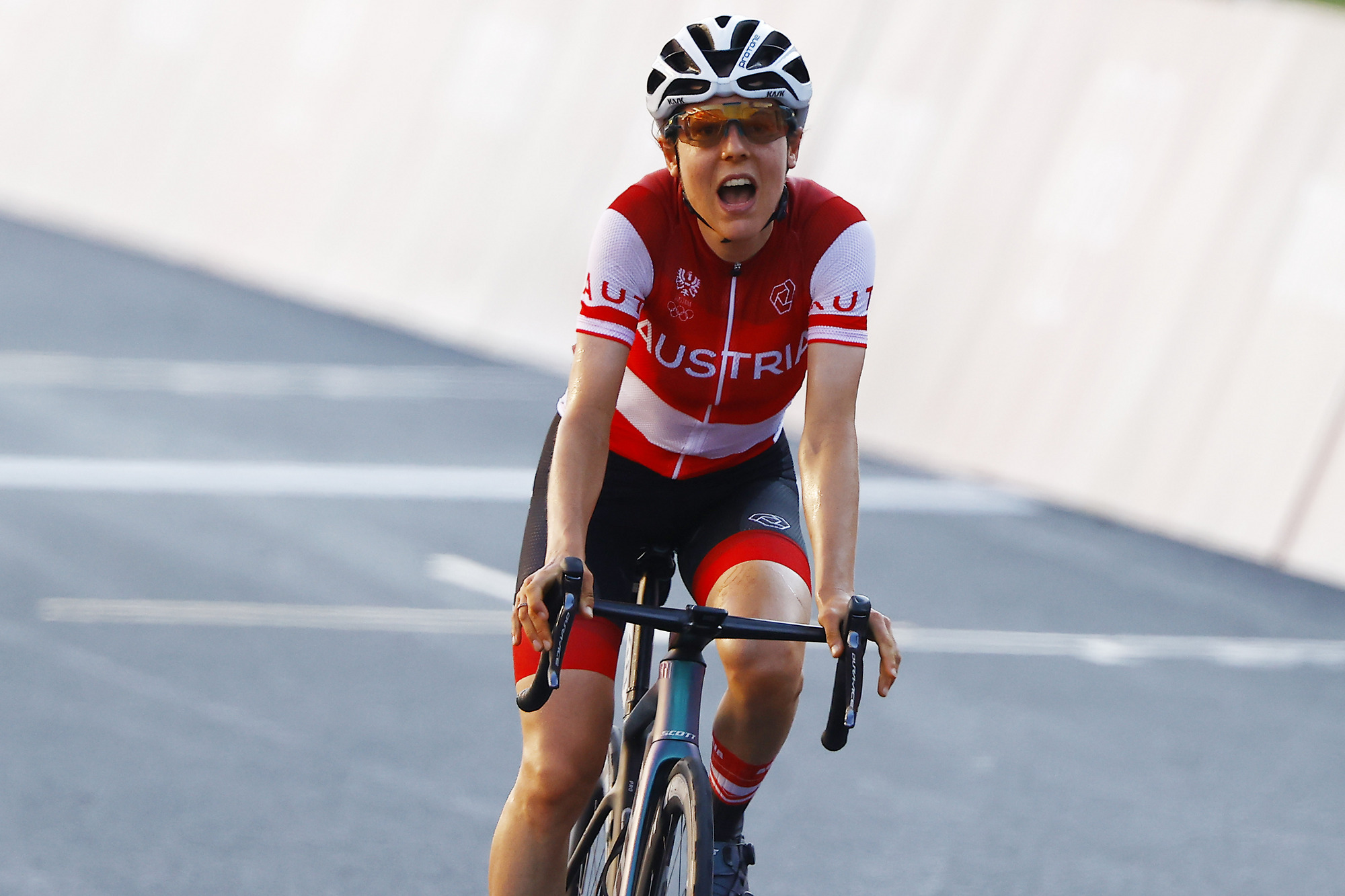
Anna Kiesenhofer was likely the most surprised of all to have won the gold medal in the women’s road race at the Olympic Games.
The strong time triallist from Austria doesn’t currently race for a trade team on the international circuit, at least not since she left Lotto Soudal in 2017.
Kiesenhofer is a mathematician and an Austrian university lecturer who said that she dedicates a large part of her life to cycling. She also said she is the mastermind behind her own performance in terms of nutrition, equipment, training and tactics.
Her astonishing gold-medal ride in Tokyo is a testament to the unpredictability of bike racing.
While all eyes were on the Dutch team heading into the race as favourites, Kiesenhofer stole away from the main field with an early breakaway during the opening kilometres. She wasn’t seen by the peloton again until she was celebrating her gold medal just beyond the finish line at the Fuji International Speedway.
It was a remarkable and emotional performance that left her crying and gasping for air as she lay on the tarmac after the race waiting for the rest of the peloton to arrive and contest the silver and bronze medals.
Her tears, laugher, disbelief were later replaced with the inner knowledge that she was well-prepared for this race, not just physically prepared, but with a strong mentality and the belief that anyone on the starting line is a contender for the victory.
At the heart of bike racing is its unpredictability. It can be just as much about preparation and fitness as it is about other variables and factors such as the route, team tactics, communication, weather condition, luck or determination – it's all part of racing.
"I sacrificed everything for today, for getting a good result. In my mind, a good result might have been 25th, and I was just sacrificing everything for 25th, so now to get the win, it’s such an incredible reward," Kiesenhofer said.
Dutch loss
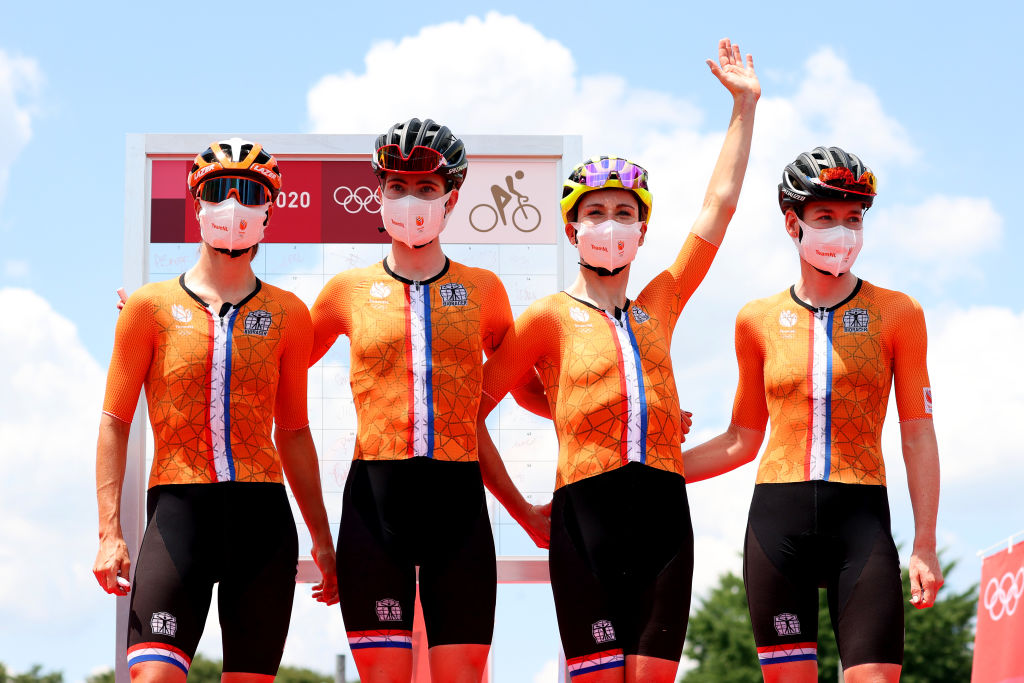
The cycling world has become used to seeing the dominance of the women’s Dutch National Team, and its riders at major events and on the Women’s WorldTour trade team circuit. So much so that their winning success is almost expected.
There is no doubt that they arrived at the Tokyo Olympic Games with the most powerful team on paper and all eyes were on them to win a third consecutive gold medal.
Double world champion Anna van der Breggen had won a record seventh Flèche Wallonne and a fourth overall title at the Giro d’Italia Donne, Annemiek van Vleuten had won Tour of Flanders, Marianne Vos had won Amstel Gold Race and Gent-Wevelgem and Demi Vollering had won Liège-Bastogne-Liège and La Course by Le Tour de France.
It was a team that started with the best chance at winning but on a very rare occasion they ended up with second place with van Vleuten. A silver medal at the Olympic Games is certainly an accomplishment to be celebrated, but for the Dutch, it's one step down on the podium than they have become accustomed.
"We came for gold, so a bit of mixed feelings," van Vleuten said after the race.
Van Vleuten crossed the line believing that she had won the gold medal. She had made a powerful late-race attack inside 2 kilometres to go but was unaware that early-breakaway rider Anna Kiesenhofer (Austria) had already crossed the line more than a minute earlier and won the Olympic title.
"At the moment it’s a bit hard to be happy with it, but I achieved my goal. We underestimated Anna Kiesenhofer as a Dutch team and I think we will sit together tonight and evaluate. The big thing was a lack of communication in this race."
Some may have questioned the dynamics within the notoriously dominant orange-clad team, with so many winners, however, their professionalism and respect for one another normally outweigh any personal goals, and they have a history of winning major events as a team at World Championships and Olympic Games.
This time, however, they were forced to settle for second.
Questionable tactics
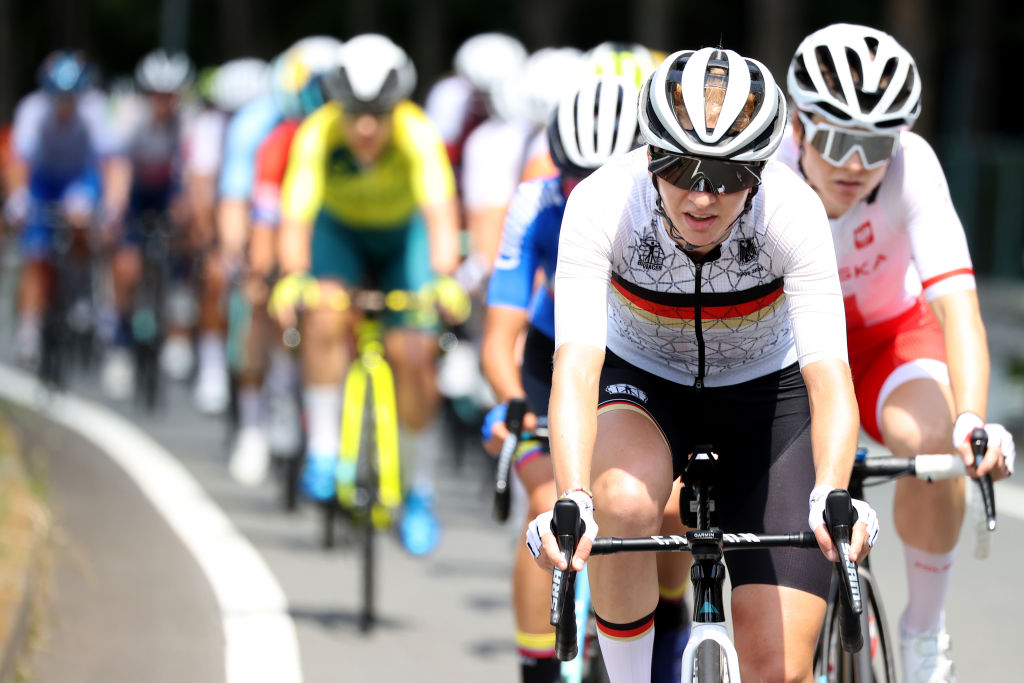
When the early breakaway set sail with Anna Kiesenhofer (Austria), Carla Oberholzer (South Africa), Vera Looser (Namibia), Omer Shapira (Israel), and Anna Plichta (Poland), almost all other nations looked to the Dutch to manage the gap to the breakaway, but they did not.
It is a rare thing to see the Dutch team relinquish control of a race and it was a questionable tactic, perhaps even an error, that they didn’t field a rider in the early move nor quickly develop an organised chase behind in the main field.
The lack of response from the other major nations, that mistakenly relied too heavily on the Dutch team to reduce the gap, allowed the margin to the breakaway to increase to more than 10 minutes.
There were four other major national teams with maximum rider quotas including the USA, Australia, Italy and Germany, and neither were represented in the decisive move either.
Germany put forth a concerted effort to organise a team chase, however, their efforts were thwarted by numerous attacks in a futile effort to bridge the gap.
Van Vleuten was the closest at making it across, but she too was reeled in with 25 kilometres to go. What was left of the field caught Omer Shapira (Israel), and Anna Plichta (Poland) on the speedway inside 5 kilometres, but they were not able to bring back gold medal winner Kiesenhofer.
Cecilie Uttrup Ludwig (Denmark) expressed her disappointment that major nations did not put more effort into chasing the breakaway sooner calling their race tactics 'absurd', while Lizzie Deignan (Great Britain) called it a 'defensive' race with 'weird agendas'.
Race radio debate resurfaces
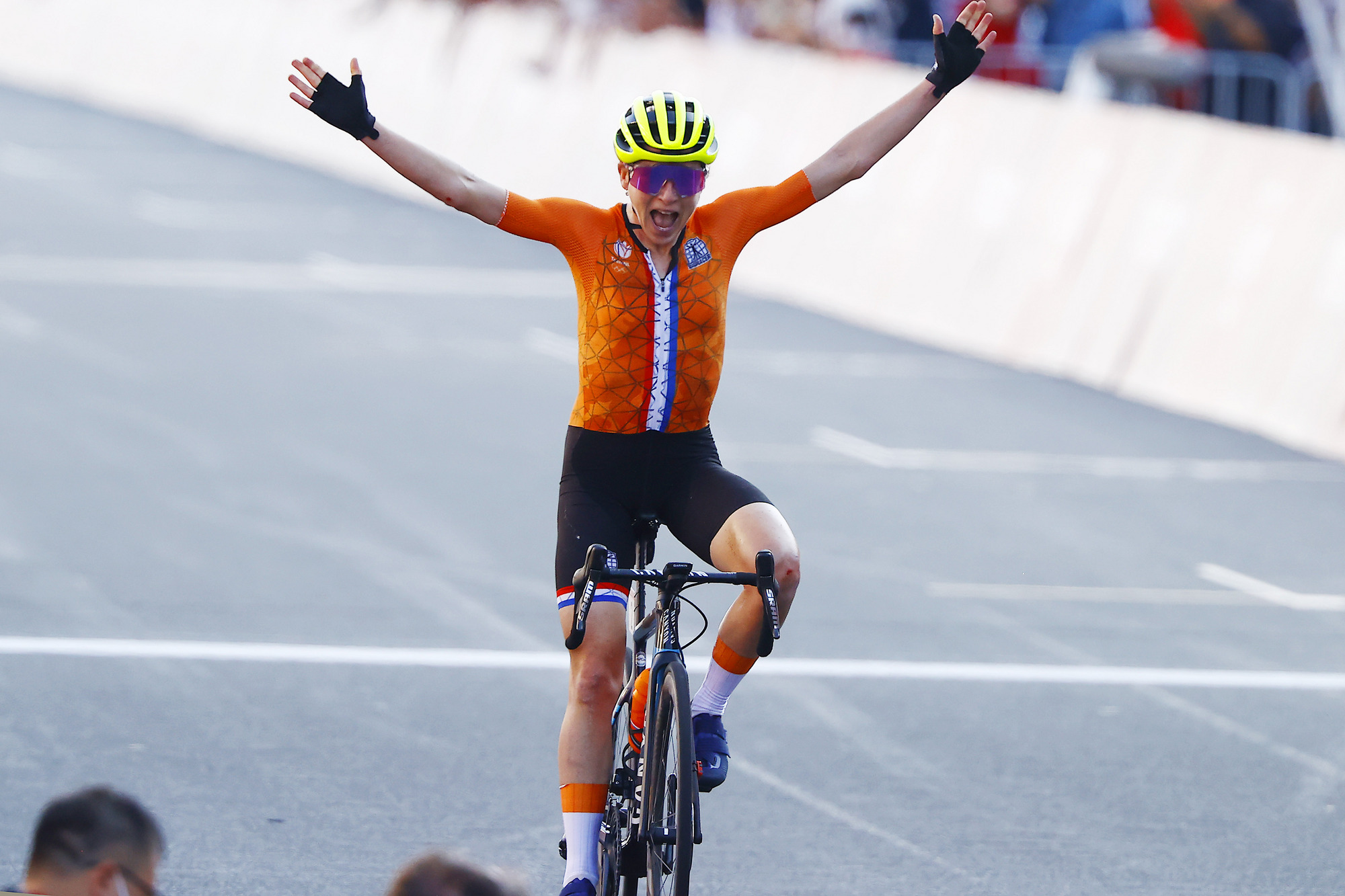
Communication is one of the most important aspects between officials, riders, and team staff within a bike race, which was reportedly lacking to some degree in the women’s road race at the Tokyo Olympic Games, causing the race radio debate to resurface.
The women’s peloton is permitted the use of race radios to communicate between teammates on the road, and staff positioned in support vehicles, during Women’s WorldTour races throughout the season.
However, the use of race radios is not permitted at the Olympic Games and so riders must rely on verbal communication with one another while racing on the road. They can drift back to their support vehicles to get race details from a director, or they can monitor a moto-official’s information written on a whiteboard for the breakaway and peloton to view.
The debate over the use of race radios has been a long one. Some view them as a necessity for in-race communication and safety, while others believe that the dynamics of racing are more interesting without athletes relying on such technology.
In the women’s road race, several riders have stated that they did not know that Austria’s Anna Kiesenhofer was still off the front during the closing kilometres of the race, particularly after her two breakaway companions Omer Shapira (Israel) and Anna Plichta (Poland) had been caught inside 5 kilometres to the line at the Fuji International Speedway.
"In the most important race, you’re not allowed to ride with communication, which we usually do. It should make the race more interesting but it made the race more confusing," said Annemiek van Vleuten (Netherlands), who attacked what was left of the field with 2 kilometres to go on the speedway track and crossed the line thinking she had won, but in fact took silver.
The Dutch team were divided on the matter with Marianne Vos stating she knew Kiesenhofer was still off the front of the race. "There were still three riders ahead and we caught two, so I knew there was one more ahead," Vos said, who relied on her own race experience and knowledge from inside the peloton to gauge what was happening in the race.
"It was difficult with communication, but you know that in advance. Without earpieces you have to make do with the information from the side. In retrospect, it is easy and you would have done it differently, that is clear."
Parity in 2024 Paris
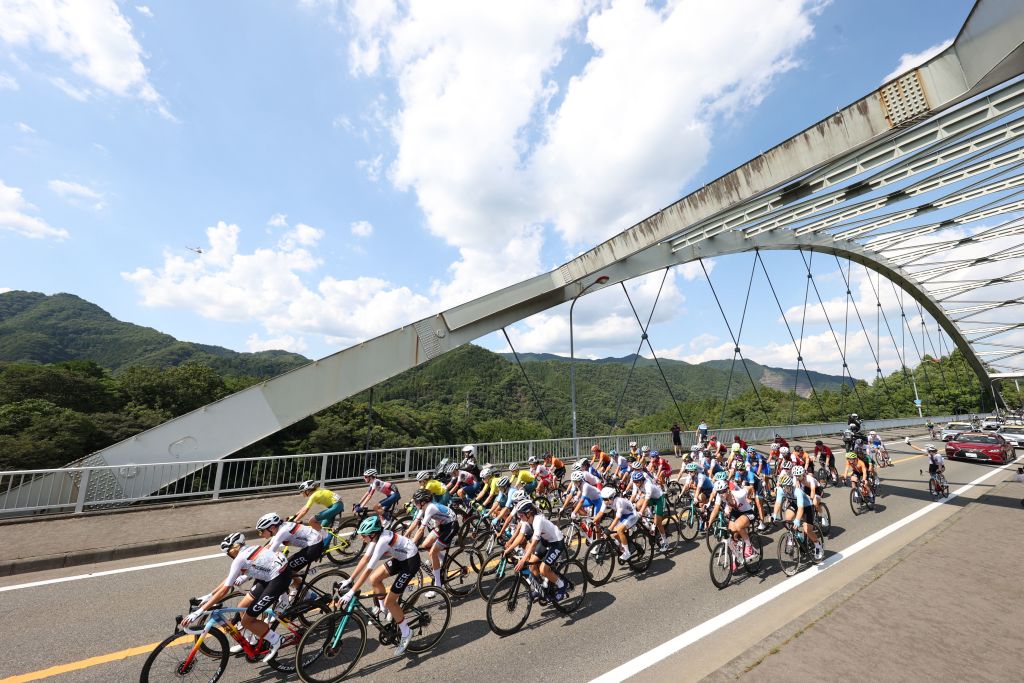
The most striking contrast in the cycling events at the Tokyo Olympics Games was the lack of parity in quotas with 130 athletes participating in the men's road race and 67 competing in the women's event.
When American Connie Carpenter won the gold medal in the very first women's road race at the 1984 Olympic Games in Los Angeles, she competed among a field of 45 women, while her compatriot Alexi Grewal won gold among a field of 135 men.
Participation spots in road events hit a maximum at the 2004 Olympic Games in Athens, where there were 200 men and 67 women competing. The women's field has remained unchanged since 2004 still with just 67 starters in Tokyo.
The number of starters, 67, is small in comparison to the some 145 riders and six-rider teams that started at the Tour of Flanders on the Women's WorldTour, for example.
The small field also means that while some teams have four riders others only have one spot, making the Olympic women's road race oftentimes, unrepresentative of cycling as a team sport on the international calendar.
The UCI has already announced that there will be full gender parity in terms of athlete numbers in cycling events at the 2024 Paris Olympic Games.
There will be a total of 514 athletes – 257 men and 257 women – participating across the five disciplines of road, track, MTB, BMX and BMX Freestyle Park. The biggest change will be in the elite men's and women's road races, where 90 athletes will take part in the men's and women's events for the first time in Olympic history.

Kirsten Frattini is the Deputy Editor of Cyclingnews, overseeing the global racing content plan.
Kirsten has a background in Kinesiology and Health Science. She has been involved in cycling from the community and grassroots level to professional cycling's biggest races, reporting on the WorldTour, Spring Classics, Tours de France, World Championships and Olympic Games.
She began her sports journalism career with Cyclingnews as a North American Correspondent in 2006. In 2018, Kirsten became Women's Editor – overseeing the content strategy, race coverage and growth of women's professional cycling – before becoming Deputy Editor in 2023.